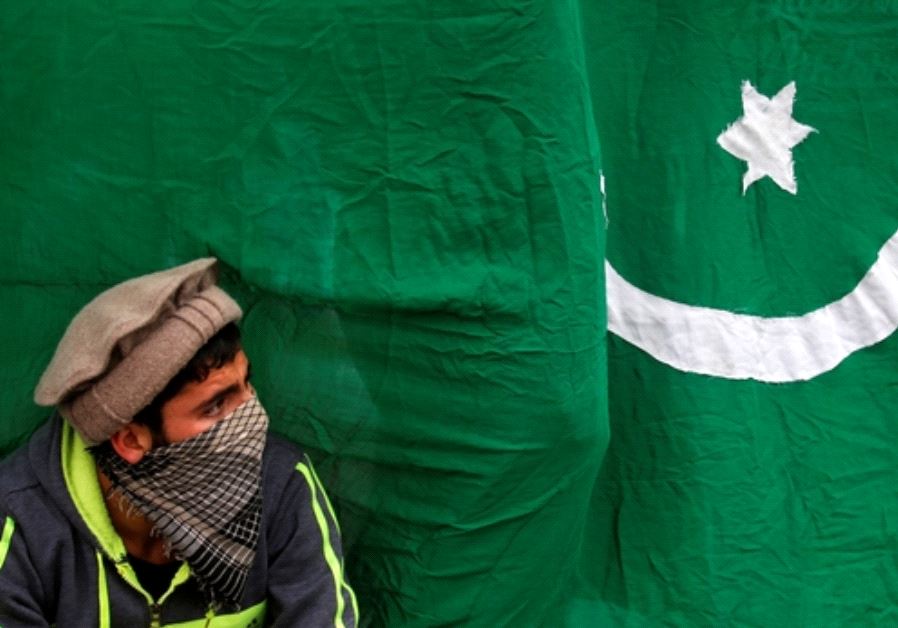Blasphemy laws in Middle East leave minorities holding their tongues
Pakistan emblematic of using blasphemy laws to repress religious minorities.
 A masked protester sits next to a flag of Pakistan during an anti-Indian protest ByJULIA ALTMANN/THE MEDIA LINE
A masked protester sits next to a flag of Pakistan during an anti-Indian protest ByJULIA ALTMANN/THE MEDIA LINE